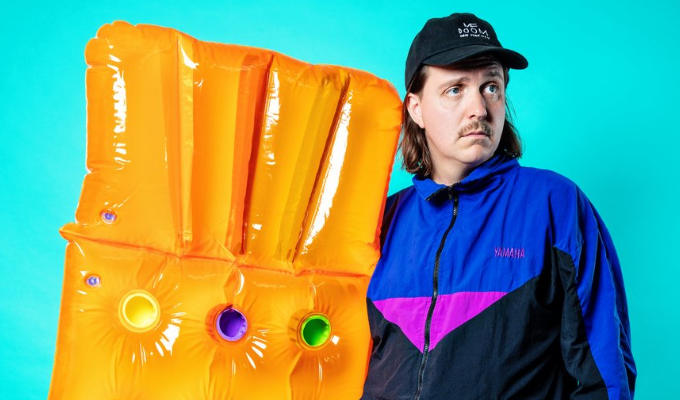 © A&E Television Networks
© A&E Television Networks Britain’s Greatest Obsessions: Harry On Humour
Review of the new Sky History series
Thank heavens for Harry Hill, whose wit and enthusiasm saved the otherwise flimsy first episode of Britain’s Greatest Obsessions from a complete descent into irrelevance.
Even so, this supposed analysis of the national sense of humour had all the depth of a One Show episode dedicated to comedy, with a few breezy filmed reports interspersed with sofa-based chit-chat from people who might not exactly be experts. Chris Packham asked if it was still OK to tell thick Irishman jokes.
In the VTs, Bonnie Langford gushed about pantomime and we meet that traditional British entertainer, a Punch & Judy man… though the acknowledgement that the seaside favourite has Italian roots was something of a hole in the show’s ‘British Obsessions’ format. As was the response Lorraine Kelly got when she asked whether different parts of the country had different senses of humour. Don’t know, said Hill, ‘we only filmed inside the M25’.
Partly this was an exercise in nostalgia, with Fawlty Towers and Dad’s Army remaining the reference points for sitcom, while another segment sung the praises of Tommy Cooper. However, producers didn’t have the budget for many clips.
When it came to superficially addressing the changing mores of comedy, at least Lisa Tarbuck admitted that On The Buses left her feeling ‘creeped out’ and was happy to misogyny now being called out for being unacceptable rather than just banter.
As is traditional, ‘women in comedy’ had to have their own segment, reinforcing the idea that somehow this is a sub-category of its own. Carry On was mentioned with its seaside postcard humour and commercial success ascribed to Britain’s sexual repression.
However, the show got more interesting when it challenged – albeit gently – the notion of British exceptionalism when it comes to comedy. Hill praised the ‘bada-boom-bada-bing’ rhythms of Jewish-American comedians, and Reginald D Hunter pooh-poohed the idea that no one in the States gets sarcasm, citing Mad magazine. It’s just not the only form of communication.
Clearly, Brits like to think they have a special sense of humour, which is so crucial in defining personality here. ‘Nowhere else in the world do they keep asking "what do you think of our sense of humour",’ Hunter noted.
Meanwhile, German comic Henning Wehn noted, in a comment redolent of some of his stand-up lines, that the Germans value competence in the workplace, while in the UK: ‘It doesn’t matter how much you mess up as long as you can tell your tale of underachievement in an amusing manner.’
Hill himself remembered how, as a geeky child, he won otherwise elusive social ‘currency’ by being able to erecall Two Ronnies sketches in the playground the following day.
Another good insight came from We Are Lady Parts creator Nida Manzoor who saw her work as a counterbalance to the earnest narrative that generally surrounds Muslim women in the media. ‘When you are given a serious treatment, you are dehumanised,’ she told Hill. ‘Laughter is the shortest distance between two people,’ as Victor Borge (not British) once said.
But yet again, any flicker of analysis is glossed over before we move on to the next thing, such as Holly Burn talking about physical comedy – surely the main sort of humour that is global, rather than specifically British. And then back to the sofa chat between the presenters of future episodes.
Packham will talk about pets, Tarbuck the weather and Hunter will address class with the help of Alexei Sayle. Maybe they’ll offer more depth than this opener, but don’t get your hopes up. After all, what could be more British than low expectations?
• Britain’s Greatest Obsessions aired on Sky History last night and is now available on catch-up services as well as streaming platform Now.
Review date: 13 Sep 2022
Reviewed by: Steve Bennett









